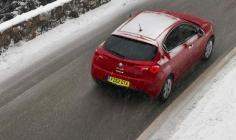
Clocking fraud has grown in recent years, with an estimated one in 15 cars now affected. In licensed vehicles, misreported mileage may adversely affect driver and passenger safety. Saad Ahmed spoke to LTU, Glass’s and cap hpi about how fraudulent mileage affects fleets, and what be done to combat it
“It’s at epidemic proportions,” Chris Hargreaves, head of press and PR at trade body Licensed Transport Uncovered (LTU) tells Leasing Life. “You don’t have to look far to find car clocking across the UK.”
Clocking fraud has been an ongoing issue in the motor industry for many years, and has spread within the fleet and private hire industries.
Despite the shift to digital odometers over the past several years, incidences of clocking fraud have actually risen. According to vehicle valuation firm cap hpi, as many as one in 15 cars experience mileage discrepancies.
“Going back, say, to 2013, we typically find that one in 20 vehicles checked with us showed a discrepant mileage. Three years on, looking at 2016, we’re now finding that number is closer to one in 15,” Barry Shorto, head of industry relations at cap hpi, tells Leasing Life.
However, on the differences between self-reported mileage and values recorded on the National Mileage Register, Shorto warns this may not always mean that deliberate mileage manipulation has occurred.
How well do you really know your competitors?
Access the most comprehensive Company Profiles on the market, powered by GlobalData. Save hours of research. Gain competitive edge.

Thank you!
Your download email will arrive shortly
Not ready to buy yet? Download a free sample
We are confident about the unique quality of our Company Profiles. However, we want you to make the most beneficial decision for your business, so we offer a free sample that you can download by submitting the below form
By GlobalData“We’re looking at over 200m mileage readings here supplied by a range of different parties. Some mileage readings will be submitted that are incorrect, quite innocently,” he says.
Despite such possible human errors, mileage discrepancies, particularly those varying by an unexpected or unrealistic number of miles between MOTs, are a key indicator of deliberate fraud.
Hargreaves tells Leasing Life that the practice is widespread in the private hire industry, and could not happen without driver complicity.
“We’ve tracked down one mileage-correction service that’s going round the North West, who basically goes to the same companies – private hire firms and chauffeur companies – on a regular basis,” Hargreaves says, “[he] reduces the mileage, and comes back when they need the next one.”
The reasons why mileage fraud is committed vary by the type of vehicle and its intended recipient or industry. In all instances, however, it is thought that it is generally used for financial reasons, either to avoid charges or penalties, or yield greater returns from vehicles sold on the secondary market.
In the case of fleets, Hargreaves says some operators in the chauffeur and private hire industry use clocking as a means to undercut rivals.
“The ones that are clocking the vehicles can undercut legitimate operators, because they don’t have all these costs. They can’t compete with these companies that are clocking their vehicles,” Hargreaves explains.
Clocking among private hire fleets has, according to Hargreaves, reached “epidemic proportions”, due in part to competition between fleets for business, and the desire for greater returns in the used market.
Hargreaves believes the two issues are linked, as engaging in clocking to lower vehicle mileage may free firms from factoring in depreciation costs, as they expect a higher value on resale.
The rise of PCP seems to present a greater incentive to commit clocking fraud. The desire to avoid additional charges for exceeding the mileage specified in a PCP deal may induce firms to seek ‘mileage correction’ services.
Another implication is a deliberate conspiracy to defraud by choosing a lower mileage. Hargreaves says some fleets which engage in clocking acquire cars by reporting a lower mileage that they intend to use. “Instead of paying £800-900 a month, [they’ll] only be paying £200-300 a month,” he says.
The most immediate effect of clocking fraud is on driver and passenger safety, rather than the fleet finance industry. Misreported mileages may result in gaps in service histories, and issues may go unreported due to less careful inspection.
“I think the risk is very real,” Shorto says. “For example, timing belts are clearly critical elements which have a life and need to be changed on a prescribed basis. Brakes clearly need to be serviced and replaced on a basis relative to their age and condition.”
In the taxi and private hire industry, passenger safety may be compromised due to wear and tear on clocked vehicles, according to Hargreaves, who offers an example: “We found a [vehicle] in London, 12 months old, just had its first annual MOT. The car had advisories that the brake disks were pitted and scored, the tires were close to the legal limit, and the brake pads were low.”
According to Hargeaves, the vehicle had 11,000 miles on its odometer; it was estimated that it should have been between 30,000 and 40,000 miles. If the car was then found to have been clocked, Hargreaves argues that insurers may not pay out in the event of an accident.
The answer to the problem of clocked cars, according to the respondents, hinges on three main factors: technology, due diligence, and producing a disincentive.
Technology, though seen to have failed to deliver with the introduction of digital odometers, may also be a possible solution.
The rise of connected cars, with mileage and other data stored at multiple sites, may diminish the ability for individuals to misreport mileage, as fraudulent figures cannot be corroborated.
“It would be very helpful to have a central repository of all mileage data for all vehicles submitted in real time, electronically, that would provide a very high level of protection,” Shorto says.
Issues over data sharing and ownership may make this solution to be “too difficult to do,” according to Rupert Pontin, head of valuations at cap hpi. Employees, drivers or fleet operators may not consent to having their mileage – and by extension their movements – monitored, and it may prove difficult to apply within the law.
Increasing due diligence was a solution that all the interviewees told Leasing Life would help to remedy the situation. While it would not stop clocking at source, increasing due diligence would allow greater identification on a vehicle’s return cycle.
“Why can’t the industry, these finance houses, come in at the beginning and do these due diligence checks and stop these vehicles going on forecourts?” Hargreaves asks, arguing that motor finance providers could deny stock finance and prevent clocked vehicles entering the market.
This, in turn, could have the potential to reduce the supply of clocked cars on the secondary market, and reduce the economic viability of mileage fraud in that way.
The solution to the problem is likely to lie in a combination approach. Those providing vehicles to business for fleets, on leasing or PCP deals may have to consider increasing mileage flexibility.
Auction houses and dealers may have to engage in greater due diligence on the return cycle, and technology may play a greater role as a corroborator of mileage records.







